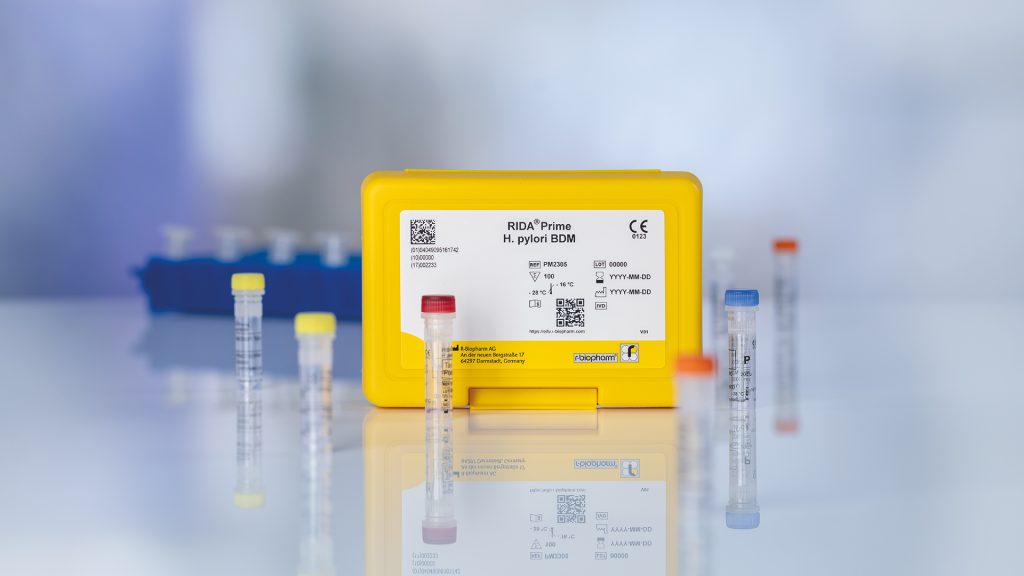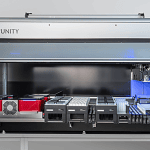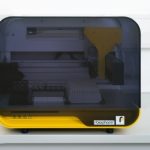PCR detection of H. pylori and associated antibiotic resistances
More than half of the world’s population has a Helicobacter pylori (H. pylori) infection of the stomach. About 20 % of these patients are at risk of developing gastric ulcers, duodenal ulcers, or stomach cancer. PCR detection of H. pylori from biopsy material offers a rapid and highly sensitive method for diagnosing H. pylori infections. This technique not only detects the pathogen but also determines important antibiotic resistances, enabling optimal treatment by tailoring therapy to resistance patterns.
RIDA®Prime Helicobacter pylori BDM
(Art. No. PM2305)

- Detection of:
- H. pylori DNA
- Clarithromycin resistance (23S rRNA)
- IVDR-certified
- Matrix: untreated human biopsy samples
- Can be processed manually and fully automated
with the BD MAX™ System
Key facts
Comprehensive detection: detection of the pathogen plus 4 associated antibiotic resistances (fluoroquinolone, clarithromycin, tetracycline, amoxicillin)
BD MAX™ System key facts

Maximum efficiency: fully automated workflow on the BD MAX™ System
Comprehensive detection: detection of the pathogen plus clarithromycin resistance
Highest sensitivity and specificity: precise results for optimal treatment
In addition to the PCR detection of Helicobacter pylori and its resistance to clarithromycin, we offer specialized resistance kits for fluoroquinolone, tetracycline, and amoxicillin. These kits provide a comprehensive approach to understanding H. pylori infections.
RIDA®UNITY H. pylori & Resistance CF RUO*
(Art. No. UN2310RUO)
- Detection of:
- H. pylori DNA
- Clarithromycin resistance
- Fluoroquinolone resistance
- Matrix: human native biopsy material
- Manual processing
* RUO = For Research Use Only
RIDA®UNITY H. pylori Resistance AT RUO*
(Art. No. UN2315RUO)
- Detection of:
- Tetracycline resistance
- Amoxocillin resistance
- Matrix: human native biopsy material
- Manual processing









